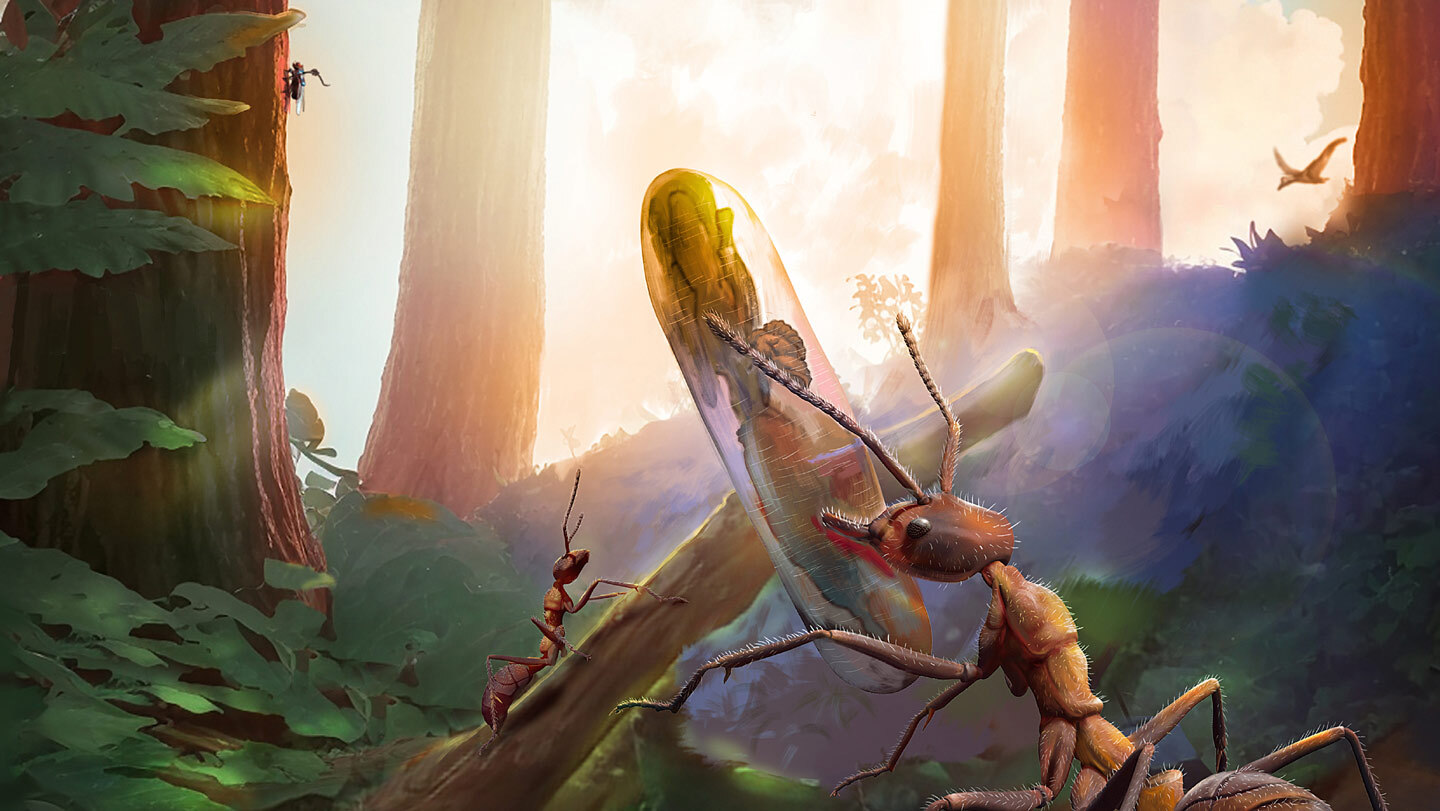3-D: Short for three-dimensional. This term is an adjective for something that has features that can be described in three dimensions — height, width and length.
amber: Fossilized tree resin (not sap). Researchers think most of this gemstone likely comes from conifers, or evergreen trees that bear cones.
ancestor: A predecessor. It could be a family forebear, such as a parent, grandparent or great-great-great grandparent. Or it could be a species, genus, family or other order of organisms from which some later one evolved. For instance, ancient dinosaurs are the ancestors of today’s birds. (antonym: descendant)
behavior: The way something, often a person or other organism, acts towards others, or conducts itself.
caterpillar: The larval stage of moths and butterflies. Somewhat wormy-shaped crawlers, caterpillars tend to eat leaves and other plant bits. Some will, however, dine on other insects.
fossil: Any preserved remains or traces of ancient life. There are many different types of fossils: The bones and other body parts of dinosaurs are called “body fossils.” Things like footprints are called “trace fossils.” Even specimens of dinosaur poop are fossils. The process of forming fossils is called fossilization.
fungus: (plural: fungi) One of a group of single- or multiple-celled organisms that reproduce via spores and feed on living or decaying organic matter. Examples include mold, yeasts and mushrooms.
gland: A cell, a group of cells or an organ that produces and discharges a substance (or “secretion”) for use elsewhere in the body or in a body cavity, or for elimination from the body.
infect: To spread a disease from one organism to another. This usually involves introducing some sort of disease-causing germ to an individual.
insect: A type of arthropod that as an adult will have six segmented legs and three body parts: a head, thorax and abdomen. There are hundreds of thousands of insects, which include bees, beetles, flies and moths.
insight: The ability to gain an accurate and deep understanding of a situation just by thinking about it, instead of working out a solution through experimentation.
paleontologist: A scientist who specializes in studying fossils, the remains of ancient organisms.
pupa: (plural: pupae) The life stage in insects following the larval (caterpillar) stage and preceding adulthood.
spore: (in fungi) The species’ single-celled reproductive stage — functioning much like a seed — that is released and spread by wind or water. Most are protected against drying and heat, so they can remain viable for long periods, until conditions are right for their growth.
